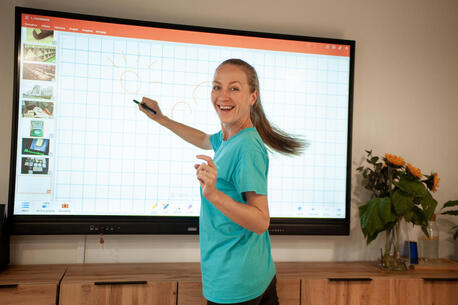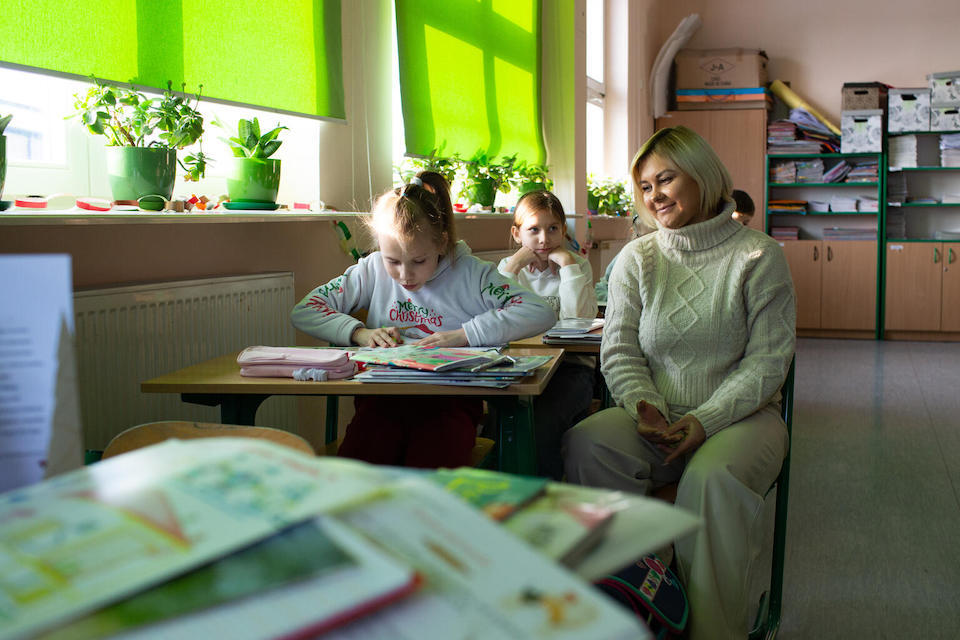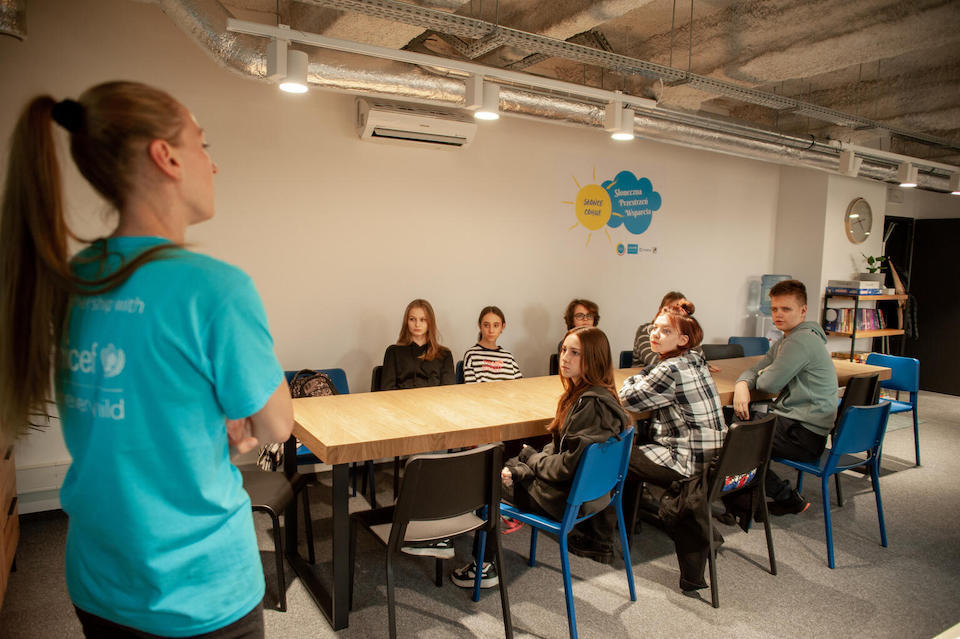
Empowering Teachers to Promote Mental Health and Well-Being in the Classroom
Two years after the escalation of the war in Ukraine, the Learning Passport is supporting mental health for teachers and students in Poland.
The Learning Passport, a free online, mobile and offline solution, provides resources for teachers working with students whose lives have been upended by the war in Ukraine
Two years after the escalation of fighting in February 2022, the war in Ukraine continues to have devastating consequences for the country’s children. Active fighting, shelling and air strikes threaten children and their families, particularly in frontline communities. Over 3.7 million people remain displaced inside Ukraine, and children continue to face a heightened risk of disease, family separation, violence (including gender-based violence), trafficking and unexploded ordnance.

In 2023, Poland became the first country globally to launch a version of the Learning Passport specifically for teachers
Across Europe, nearly 6 million Ukrainians have sought refuge in neighboring countries. In Poland, 170,000 Ukrainian children are now attending Polish public schools and preschools. To support students in the Polish school system, UNICEF introduced the Learning Passport in June 2023. With support from Sony Group Corporation and other partners, Poland became the first country globally to launch a version of the Learning Passport specifically for teachers. Through the Learning Passport platform, teachers can access high-quality resources and training specifically designed to help develop their skills, improve cross-cultural communication and support students, particularly those facing trauma, stress and difficult situations due to the war in Ukraine.

Learning Passport trainings equip teachers to support students coping with trauma and stress
As of February 2024, the Learning Passport has equipped 9,500 teachers in Poland with critical skills and knowledge needed to address trauma and stress in their classrooms and support student skills-building for mental well-being. Using these trainings, teachers in Poland have been able to support 200,000 children and adolescents over the past eight months.
"This was my first experience of fleeing war," said one primary school teacher in Poland. "I had never worked with children fleeing war either; I didn’t know how I could help. Some of the kids had it worse than me. I realized that I needed help, and that’s why I decided that I would participate in the training [to use the Learning Passport].
The [Learning Passport mental health and psychosocial support] course is like a sprouting seed, a symbol of rebirth after all of these problems [we] experience. It shows that there’s a new life out there. — primary school teacher, Poland
This year, with additional support from Sony Group Corporation and other partners, UNICEF plans to expand skills-building for mental well-being and provision of psychosocial support to students through the Learning Passport in Poland, aiming to provide more resources for teachers, Ukrainian children and young people. This expansion will focus primarily on the development of new courses and adaptation of existing ones, as well as the integration of language skill resources and continuous evaluation of activities to adapt the program to better fit the needs of beneficiaries. The implementation of strong mental health and psychosocial support skilling via the Learning Passport in Poland is already proving to be a catalyst for other countries to adopt these flexible courses and training for teachers.
See how the Learning Passport helps teachers in Poland support their students' well-being.
The Learning Passport has helped more than 6.5M children and young people in 40 countries access education and build skills
Since its launch in 2020, the Learning Passport has become UNICEF’s flagship digital learning program, helping over 6.5 million children and young people in 40 countries access quality, inclusive education and build the skills they need for a brighter future. By offering a personalized and accessible learning experience, it addresses the educational needs of diverse learners, including those in remote or marginalized communities. To learn more, contact Amee Tolia, atolia@unicef.org.
UNICEF does not endorse any company, brand, organization, product or service.
HOW TO HELP
There are many ways to make a difference
War, famine, poverty, natural disasters — threats to the world's children keep coming. But UNICEF won't stop working to keep children healthy and safe.
UNICEF works in over 190 countries and territories — more places than any other children's organization. UNICEF has the world's largest humanitarian warehouse and, when disaster strikes, can get supplies almost anywhere within 72 hours. Constantly innovating, always advocating for a better world for children, UNICEF works to ensure that every child can grow up healthy, educated, protected and respected.
Would you like to help give all children the opportunity to reach their full potential? There are many ways to get involved.





